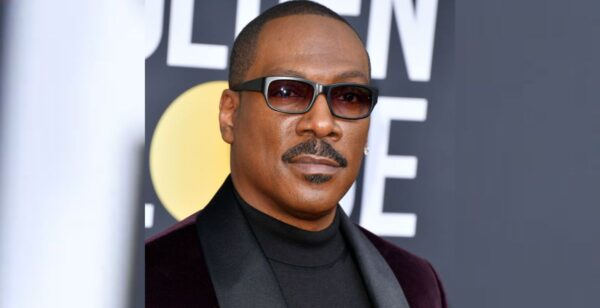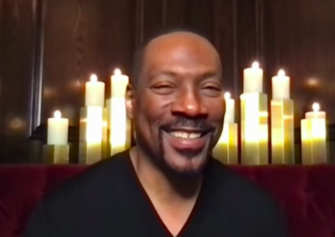Eddie Murphy’s admiration for Redd Foxx seemed profound, evident in their close friendship and mentorship. When Foxx passed away in 1991, financially destitute due to tax issues and legal troubles, Murphy honored his legacy by covering the funeral expenses.

Recognizing Foxx’s significant influence on his career, Murphy personally paid for Foxx’s lavish funeral and headstone as a gesture of love and respect for his friend and comedy idol, Vanity Fair reported.
As Finruah previously reported, the late comedian’s manager, Prince Spencer, revealed that Foxx had received a substantial payment of $500,000 for his performance in the movie “Harlem Nights,” in which Murphy starred alongside his mentor and it was Foxx’s last movie.
In a 2020 Vanity Fair interview, Murphy explained, “Redd Foxx, I had to physically pay for his funeral, and buy his headstone, and do all that stuff” because Foxx did not have his affairs in order before he died.
“I buried Redd Foxx. I literally had to bury Redd Foxx. I buried so many people over the years. For some strange reason, a lot of people in show business, when they die, they don’t have their stuff in order. Buried a lot of famous people — if you only knew. If you only knew,” Murphy said.
It is unknown how much Murphy paid out of pocket, but it was revealed in 2020 that he went out of his way to help Foxx, who owed more than $3.6 million in back taxes and had his properties and belongings seized by the IRS. The IRS had seized and auctioned off Foxx’s assets in 1989.
When the iconic comedian died, Foxx’s widow was unable to afford burial costs.
By that time, Murphy was an A-lister who would go on to take on more defining roles in the years to come.
“We were close, and I did love Redd Foxx. Yeah, I did give him a shout-out [in ‘Dolemite’] and all that stuff,” Murphy told Vanity Fair.
He also tapped Foxx for his directorial debut, 1989’s “Harlem Nights.”
“Harlem Nights,” a period crime comedy set in the 1930s, revolves around a Harlem gambling den run by Sugar Ray, played by Richard Pryor, who takes a young man named Quick (Murphy) under his wing. Foxx played Bennie Wilson, one of the club’s owners.
With an estimated budget of $30 million, it grossed $60.9 million in the U.S. and Canadian markets and $60.8 million worldwide. “Harlem Nights” ended up being Foxx’s final film role before he died in 1991.
Where Did Foxx’s Money Go?
Foxx’s mishandling of money resulted in tax issues, leaving him and his widow unable to afford a funeral upon his death.
Foxx had made a name for himself as a cultural icon throughout his performances on the Chitlin’ Circuit — a network of entertainment venues serving Black audiences and featuring Black performers during the era of Jim Crow segregation through the 1960s — to his iconic portrayal of Fred on the hit TV sitcom “Sanford and Son” in 1970s.
Fellow comedian the late John Witherspoon told a story on the “Joe Rogan Experience” podcast in 2019 about Foxx on how he did not like to pay the IRS what he owed, jeopardizing his milestone club.
Even when Foxx had made enough money to pay his taxes — Witherspoon revealed that Frank Sinatra, Sammy Davis Jr., and other acts performed at Foxx’s comedy club in Los Angeles to help raise money for Foxx — he still refused to pay the IRS, according to Witherspoon’s retelling.
In 1989, Foxx, who filed for and was declared bankrupt under Chapter 11 protection in 1983, had his Las Vegas home seized after owing $1.6 million in taxes to the IRS for periods before 1983 and more than $800,000 to other creditors.


